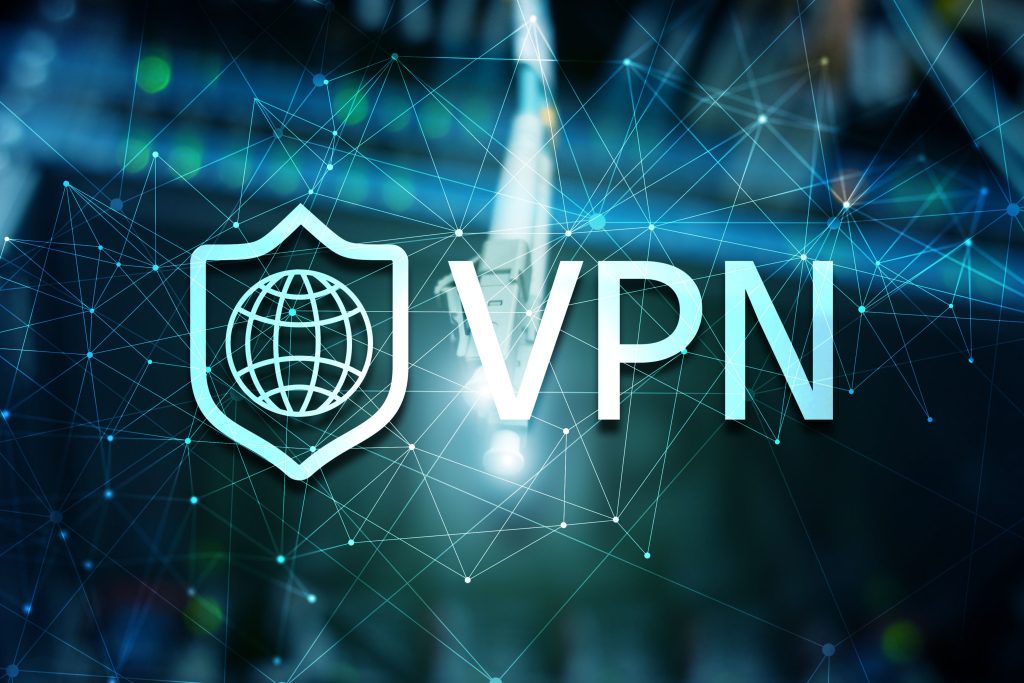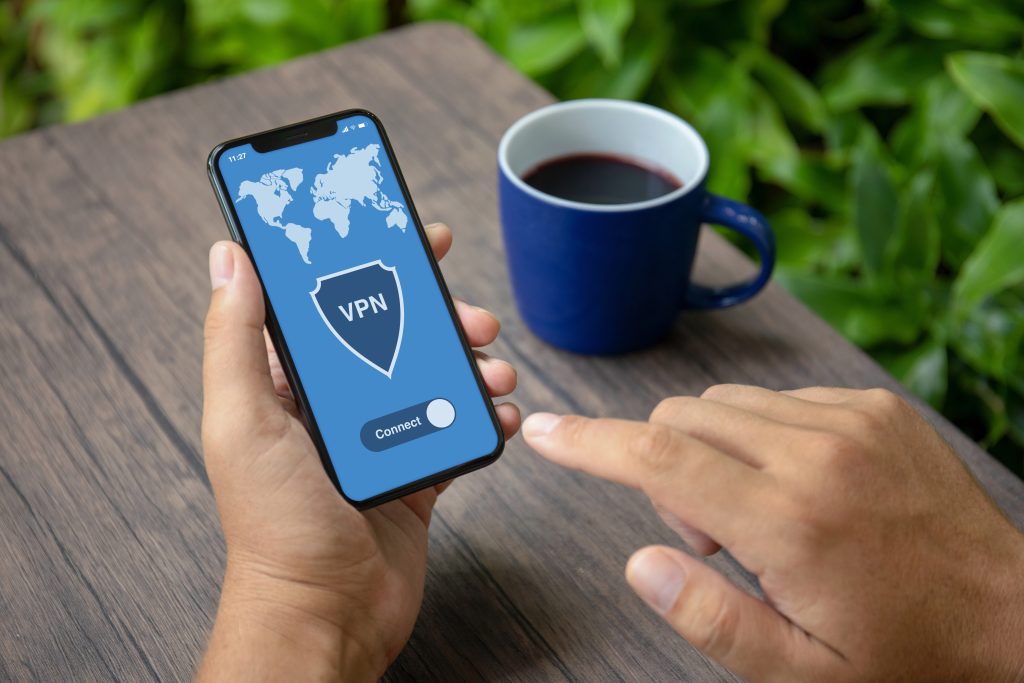Behind The Scenes: Uncovering The Technical Aspects Of Cryptocurrency VPN Services
6 min read
Cryptocurrency VPN services have gained popularity in recent years, offering users a way to protect their online privacy and security. But have you ever wondered about the technical aspects behind these services? How do they work and what makes them different from traditional VPNs?
Cryptocurrency VPN services have become an essential tool for individuals who want to maintain anonymity while using the internet. These services use blockchain technology and cryptocurrencies to provide a secure and private browsing experience. However, understanding the technical aspects of how these services operate can be complex and overwhelming.
In this article, we will delve into the technical aspects of cryptocurrency VPN services, uncovering the mechanisms that make them unique. From encryption protocols to decentralized networks, we will explore the inner workings of these services and shed light on the technology that powers them. Whether you are a cryptocurrency enthusiast or simply curious about the technical side of VPNs, this article will provide you with a comprehensive understanding of how cryptocurrency VPN services operate.
Benefits of Using Cryptocurrency VPN Services
Using cryptocurrency VPN services offers numerous benefits when it comes to protecting your online privacy and security. A VPN, or virtual private network, encrypts your internet connection, making it nearly impossible for others to monitor or track your online activities. This is particularly important when exploring third-party apps and content, as it adds an extra layer of security to prevent unauthorized access to your personal information.
Using a VPN on Fire Stick is also crucial for added protection, as it secures your internet connection and shields your online activities from prying eyes. By using cryptocurrency VPN services, you can ensure that your online privacy and security are safeguarded, providing peace of mind as you browse the internet and access various online content.

The Technical Aspects of Cryptocurrency VPN Services
Cryptocurrency VPN services offer unique technical features that make them a popular choice for users looking to protect their digital assets and maintain their privacy while using the internet. These services utilize cryptographic technologies to secure transactions and communications, ensuring that sensitive information remains confidential and protected from unauthorized access.
Security Issues and Encryption Protocols
Cryptocurrencies face various security issues such as privacy concerns, visibility of transactions, and the potential threat of theft from hacking. To address these issues, encryption protocols play a crucial role in providing enhanced security for users and their transactions.
One widely used encryption protocol is the Elliptic Curve Cryptography (ECC), which utilizes the mathematical properties of elliptic curves to secure transactions and protect sensitive information. Another protocol is Zero-knowledge proof, which allows for the verification of transactions without revealing any sensitive data.
These encryption protocols enhance security by providing privacy for transactions and ensuring that only the parties involved have access to the transaction details. Additionally, they mitigate the risk of theft from hacking by making it extremely difficult for unauthorized parties to access and decrypt the encrypted data.
These protocols align with the decentralized and secure vision of cryptocurrencies by ensuring that transactions are private and secure, and by providing a high level of protection against potential security threats. As a result, they instill confidence in users and encourage wider adoption of cryptocurrencies as a secure form of currency.
IP Address Obfuscation and Anonymity
IP address obfuscation and anonymity can be achieved through various methods such as using a proxy server, connecting to a mobile network, or utilizing the Tor network.
Proxy servers act as intermediaries between a user’s device and the internet, masking their IP address and providing anonymity. Similarly, connecting to a mobile network can change the user’s IP address, making it harder to track their online activities.
The Tor network, on the other hand, routes internet traffic through a series of volunteer-operated servers, hiding the user’s IP address and providing a high level of anonymity.
However, these methods have potential drawbacks compared to using a VPN for privacy and security. Proxy servers and mobile networks may not provide the same level of encryption and security as a VPN. Additionally, the Tor network can be slower and less user-friendly for everyday browsing.
Simultaneous Connections and Bandwidth Allocation
Simultaneous connections refer to the number of devices or users that can access the network at the same time. Bandwidth allocation is the process of dividing the available bandwidth among these simultaneous connections. In network management, it is crucial to optimize these two factors to ensure efficient network usage and minimize congestion.
The number of simultaneous connections directly affects network performance. Too many simultaneous connections can lead to congestion and slow down the network for all users. Bandwidth allocation becomes critical to prioritize traffic and ensure that each user or device gets the necessary resources to operate effectively.
To manage simultaneous connections and bandwidth allocation, best practices include implementing Quality of Service (QoS) policies to prioritize critical traffic, regularly monitoring network performance to identify and address congestion points, and setting limitations on the number of simultaneous connections for certain devices or users. This will help to ensure efficient network usage and optimize performance.
Software Suite Requirements for Usage
To utilize our software suite, users will need a computer operating on Windows 10 or Mac OS X 10.13 or later. The minimum memory requirement is 4GB RAM, but for optimal performance, 8GB or more is recommended. A multi-core processor with a clock speed of at least 2.0 GHz is necessary, with a higher clock speed providing better performance.
In addition to the basic system requirements, it is essential to have a stable internet connection for software updates and cloud-based features. Users may also benefit from a dedicated graphics card for tasks involving video editing or 3D rendering.
Specialized software components such as Adobe Creative Suite or Microsoft Office may be required for certain functionalities. For instance, our software suite may integrate with Adobe Photoshop for image editing capabilities. Other essential components may include antivirus software to ensure the security of the system and data.
By ensuring that these software suite requirements are met, users can experience optimal performance and compatibility with our system.
Internal Storage and Data Retention Policies
Our company’s internal storage and data retention policies are designed to ensure the security and confidentiality of all data. Data is stored in encrypted form on our internal servers, which are protected by robust security measures such as firewalls, access controls, and regular security audits.
The retention period for different data types varies based on legal and regulatory requirements as well as business needs. Personally identifiable information (PII), financial data, and other sensitive information is retained for a specific period as mandated by applicable laws and regulations. Non-sensitive operational data may be retained for a shorter duration based on business needs.
Specific data types subject to retention policies include customer records, employee information, financial transactions, and any other sensitive business data. Our policies adhere to legal and regulatory requirements such as the General Data Protection Regulation (GDPR) and the Health Insurance Portability and Accountability Act (HIPAA), ensuring that we comply with industry standards and protect the privacy of our stakeholders. We continuously review and update our data retention policies to stay in line with applicable laws and regulations.

Conclusion
In conclusion, it is clear that cryptocurrency VPN services offer a secure, private, and anonymous way to access the internet. With encryption, authentication, and anonymity all handled by the service provider, users have complete control over their data and can remain safe online. Despite its relatively young age, cryptocurrency VPN services have already proven themselves to be reliable and efficient solutions for online security and privacy. As technology continues to evolve, so too will the use of cryptocurrency VPN services, allowing users to benefit from increased security and privacy.






